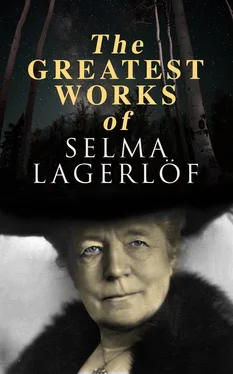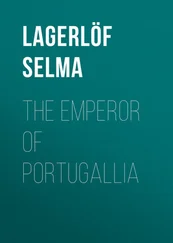“They were also very poor, which was a most uncommon state of affairs; for, in Gebas, knowledge was held in high esteem, and was well recompensed. With these men, however, it could hardly have been otherwise, for one of them was very old, one was afflicted with leprosy, and the third was a black, thick-lipped negro. People regarded the first as much too old to teach them anything; the second they avoided for fear of contagion; and the third they would not listen to, because they thought they knew that no wisdom had ever come from Ethiopia.
“Meanwhile, the three wise ones became united through their common misery. They begged during the day at the same temple gate, and at night they slept on the same roof. In this way they at least had an opportunity to while away the hours, by meditating upon all the wonderful things which they observed in Nature and in the human race.
“One night, as they slept side by side on a roof, which was overgrown with stupefying red poppies, the eldest among them awoke; and hardly had he cast a glance around him, before he wakened the other two.
“‘Praised be our poverty, which compels us to sleep in the open!’ he said to them. ‘Awake! and raise your eyes to heaven!’
“Well,” said the Drought, in a somewhat milder tone, “this was a night which no one who witnessed it can ever forget! The skies were so bright that the heavens, which usually resemble an arched vault, looked deep and transparent and full of waves, like a sea. The light surged backwards and forwards and the stars swam in their varying depths: some in among the light-waves; others upon the surface.
“But farthest away and highest up, the three men saw a faint shadow appear. This shadow traveled through space like a ball, and came nearer and nearer, and, as the ball approached, it began to brighten. But it brightened as roses do—may God let them all wither!—when they burst from their buds. It grew bigger and bigger, the dark cover about it turned back by degrees, and light broke forth on its sides into four distinct leaves. Finally, when it had descended to the nearest of the stars, it came to a standstill. Then the dark lobes curled themselves back and unfolded leaf upon leaf of beautiful, shimmering, rose-colored light, until it was perfect, and shone like a star among stars.
“When the poor men beheld this, their wisdom told them that at this moment a mighty king was born on earth: one, whose majesty and power should rise higher than that of Cyrus or of Alexander; and they said to one another: ‘Let us go to the father and mother of the new-born babe and tell them what we have seen! Mayhap they will reward us with a purse of coin or a bracelet of gold.’
“They grasped their long traveling staves and went forth. They wandered through the city and out from the city gate; but there they felt doubtful for a moment as they saw before them the great stretch of dry, smooth desert, which human beings dread. Then they saw the new star cast a narrow stream of light across the desert sand, and they wandered confidently forward with the star as their guide.
“All night long they tramped over the wide sand-plain, and throughout the entire journey they talked about the young, new-born king, whom they should find reposing in a cradle of gold, playing with precious stones. They whiled away the hours by talking over how they should approach his father, the king, and his mother, the queen, and tell them that the heavens augured for their son power and beauty and joy, greater than Solomon’s. They prided themselves upon the fact that God had called them to see the Star. They said to themselves that the parents of the new-born babe would not reward them with less than twenty purses of gold; perhaps they would give them so much gold that they no longer need suffer the pangs of poverty.
“I lay in wait on the desert like a lion,” said the Drought, “and intended to throw myself upon these wanderers with all the agonies of thirst, but they eluded me. All night the Star had led them, and on the morrow, when the heavens brightened and all the other stars grew pale, it remained steady and illumined the desert, and then guided them to an oasis where they found a spring and a ripe, fruit-bearing tree. There they rested all that day. And toward night, as they saw the Star’s rays border the sands, they went on.
“From the human way of looking at things,” continued the Drought, “it was a delightful journey. The Star led them in such a way that they did not have to suffer either hunger or thirst. It led them past the sharp thistles, it avoided the thick, loose, flying sand; they escaped the burning sunshine and the hot desert storms. The three wise men said repeatedly to one another: ‘God is protecting us and blessing our journey. We are His messengers.’
“Then, by degrees, they fell into my power,” said the Drought. “These star-wanderers’ hearts became transformed into as dry a desert as the one which they traveled through. They were filled with impotent pride and destructive greed.
“‘We are God’s messengers!’ repeated the three wise ones. ‘The father of the new-born king will not reward us too well, even if he gives us a caravan laden with gold.’
“By and by, the Star led them over the far-famed River Jordan, and up among the hills of Judea. One night it stood still over the little city of Bethlehem, which lay upon a hill-top, and shone among the olive trees.
“But the three wise ones looked around for castles and fortified towers and walls, and all the other things that belong to a royal city; but of such they saw nothing. And what was still worse, the Star’s light did not even lead them into the city, but remained over a grotto near the wayside. There, the soft light stole in through the opening and revealed to the three wanderers a little Child, who was being lulled to sleep in its mother’s arms.
“Although the three men saw how the Star’s light encircled the Child’s head, like a crown, they remained standing outside the grotto. They did not enter to prophesy honors and kingdoms for this little One. They turned away without betraying their presence. They fled from the Child, and wandered down the hill again.
“‘Have we come in search of beggars as poor as ourselves?’ said they. ‘Has God brought us hither that we might mock Him, and predict honors for a shepherd’s son? This Child will never attain any higher distinction than to tend sheep here in the valleys.’”
The Drought chuckled to himself and nodded to his hearers, as much as to say: “Am I not right? There are things which are drier than the desert sands, but there is nothing more barren than the human heart.”
“The three wise ones had not wandered very far before they thought they had gone astray and had not followed the Star rightly,” continued the Drought. “They turned their gaze upward to find again the Star, and the right road; but then the Star which they had followed all the way from the Orient had vanished from the heavens.”
The three strangers made a quick movement, and their faces expressed deep suffering.
“That which now happened,” continued the Drought, “is in accord with the usual manner of mankind in judging of what is, perhaps, a blessing.
“To be sure, when the three wise men no longer saw the Star, they understood at once that they had sinned against God.
“And it happened with them,” continued the Drought furiously, “just as it happens with the ground in the autumn, when the heavy rains begin to fall. They shook with terror, as one shakes when it thunders and lightens; their whole being softened, and humility, like green grass, sprang up in their souls.
“For three nights and days they wandered about the country, in quest of the Child whom they would worship; but the Star did not appear to them. They grew more and more bewildered, and suffered the most overwhelming anguish and despair. On the third day they came to this well to drink. Then God had pardoned their sin. And, as they bent over the water, they saw in its depths the reflection of the Star which had brought them from the Orient. Instantly they saw it also in the heavens and it led them again to the grotto in Bethlehem, where they fell upon their knees before the Child and said: ‘We bring thee golden vessels filled with incense and costly spices. Thou shalt be the greatest king that ever lived upon earth, from its creation even unto its destruction.’
Читать дальше












